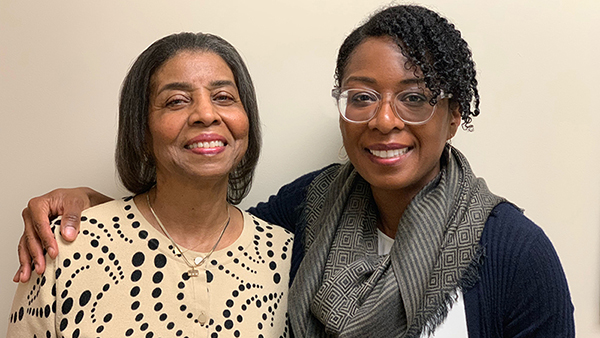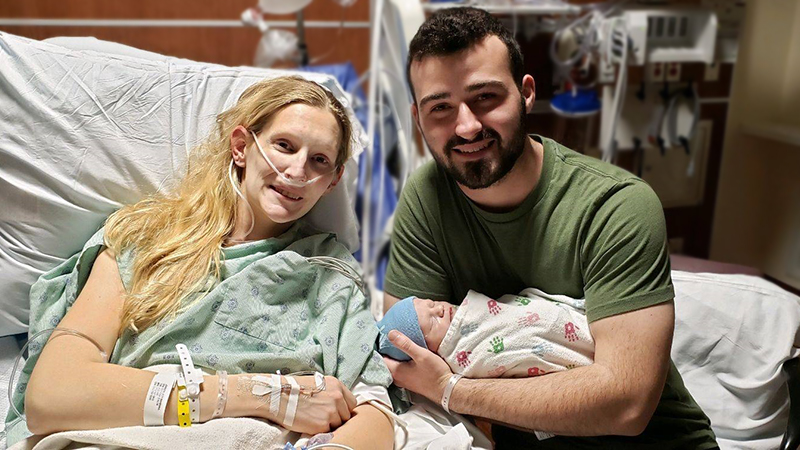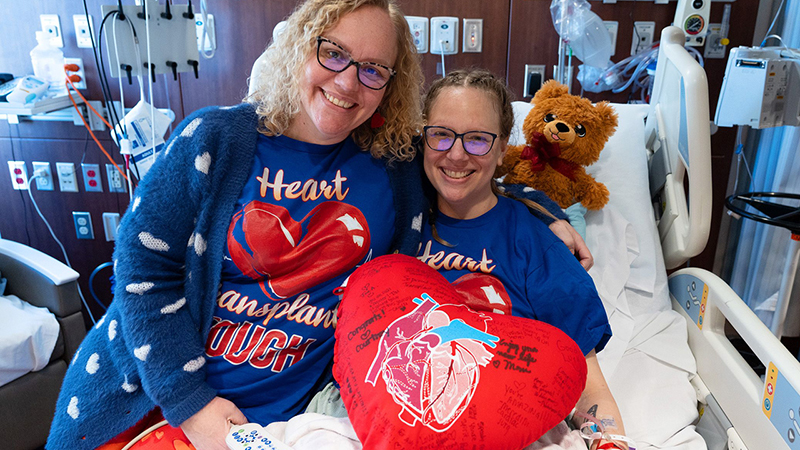6 Months to Live
Liver Transplant Saves Glory’s Life
Published February 2020
A deacon, Sunday School teacher, real estate entrepreneur, counselor and avid churchgoer, Glory Jackson has always given to others selflessly. She has opened her home to those in need and been a loving caregiver for many. But when she was diagnosed with a rare life-threatening liver disease, she had to learn how to receive care instead.
Seeking a Diagnosis
Before her diagnosis, Glory had been experiencing unusual symptoms. “It felt like a pump had opened up and drained,” she explains. Her gastroenterologist removed 3 liters of fluid that had pooled in her abdomen. “I was never in any pain, so I thought I was fine after that.”
However, just a handful of months later, she had another 2 1/2 liters of fluid drained. After tests were performed, it was apparent Glory was experiencing a problem with her liver. At this point, Glory’s abdomen was filling up with fluid so often that it needed to be removed nearly monthly; eventually, it needed to be drained weekly.
Despite a healthy lifestyle, including abstaining from drinking and smoking, Glory learned she had a rare liver disease. Primary biliary cholangitis (PBC) is a liver disease that caused her immune system to break down. The disease causes inflammation and scarring of the small bile ducts; left untreated, it can eventually lead to cirrhosis.
Education, and a Community of Distrust
To help educate patients, the Northwestern Medicine Organ Transplantation Program hosts talks for individuals looking to learn more about their disease. “We talk about the basics: what it means, and what options there are to treat liver disease,” says Dinee Simpson, MD, transplant surgeon at Northwestern Memorial Hospital. “As a group of surgeons, we really believe in this education. A transplant is a really big deal and incredibly complex. It’s a lifelong commitment, and we understand it’s not a decision to be taken lightly.”
Dr. Simpson, who is African American, notes that these educational sessions are particularly important for patients and communities who have a lot of distrust of the medical system, which is common in many
African American communities. The sessions help restore and rebuild that trust.
Though Glory had attended an informational session, she was not yet willing to proceed with an organ transplant. Dr. Simpson and a number of hepatologists sat down with her to discuss the possible health impacts of delaying transplantation and to help her work through her hesitation.
“They told me I had to have a transplant as soon as possible because my liver was breaking down. They told me, lovingly, that I only had six months to live,” Glory says. “It came from a place of love and respect; it was sincere. My blood count was not in the proper range, and I was dying.”
Once she agreed to move forward, Glory had to undergo a series of tests and evaluations. “It’s a marathon, not a sprint,” explains Northwestern Medicine Transplant Surgeon Derrick A. Christopher, MD, who performed Glory’s surgery. “It takes a while to get through the process.”
Life After Liver Transplant
Glory received a liver in the spring. “Her operation was slightly difficult due to one of the veins in her body being clotted,” explains Dr. Christopher. She required vascular reconstruction in order to make the new liver function properly. “It takes a whole host of people to make this possible,” he says. “It really was a team effort.”
Glory completed five months of therapy, and she worked with a nutritionist and dietitian to learn how to get proper nutrition. “You have to go through a process, but I’m starting to look and feel like myself again,” she says.
“I didn’t really feel like I needed help, because I wasn’t used to receiving. But once they started talking to me, I realized people want to do something for you,” Glory adds. Along with the unending support of her family and her parish, Glory says she was never alone during the experience. “I can say that everyone stood by me. I just love my physicians and everyone who came in contact with me.”
Everyone stood by me.— Glory Jackson
Dr. Simpson says, “This is the culmination of everything I look forward to as a physician. We get to see individuals like Glory, who may have been skeptical, get to the point where they accept treatment and recover in such a remarkable way, and see her smiling, healthy and feeling well. You couldn’t ask for better gratification.”

Living and Helping Others Live, Too
“There can be a stigma around liver disease that it is brought on by something the patient has done. Certainly, this had nothing to do with that,” explains Dr. Christopher. “There’s a lot of education we can provide for patients to develop a clear understanding. It’s our responsibility to tell patients and the broader community, so people can ultimately step forward as donors.”
Education can also help break down barriers created by distrust, providing patients with the opportunity to get the help they need. “To be able to take someone with end-stage liver disease, some of the sickest people in the hospital, and completely reverse that is an amazing feat,” says Dr. Christopher.
Glory, who had initially turned down the transplant, is once again drawn to helping others. She wants people facing transplant to know there are options. “Regardless of how negative the situation looks, as far as transplant goes, there’s always a chance. You have to give yourself a chance because you deserve it,” she says.







